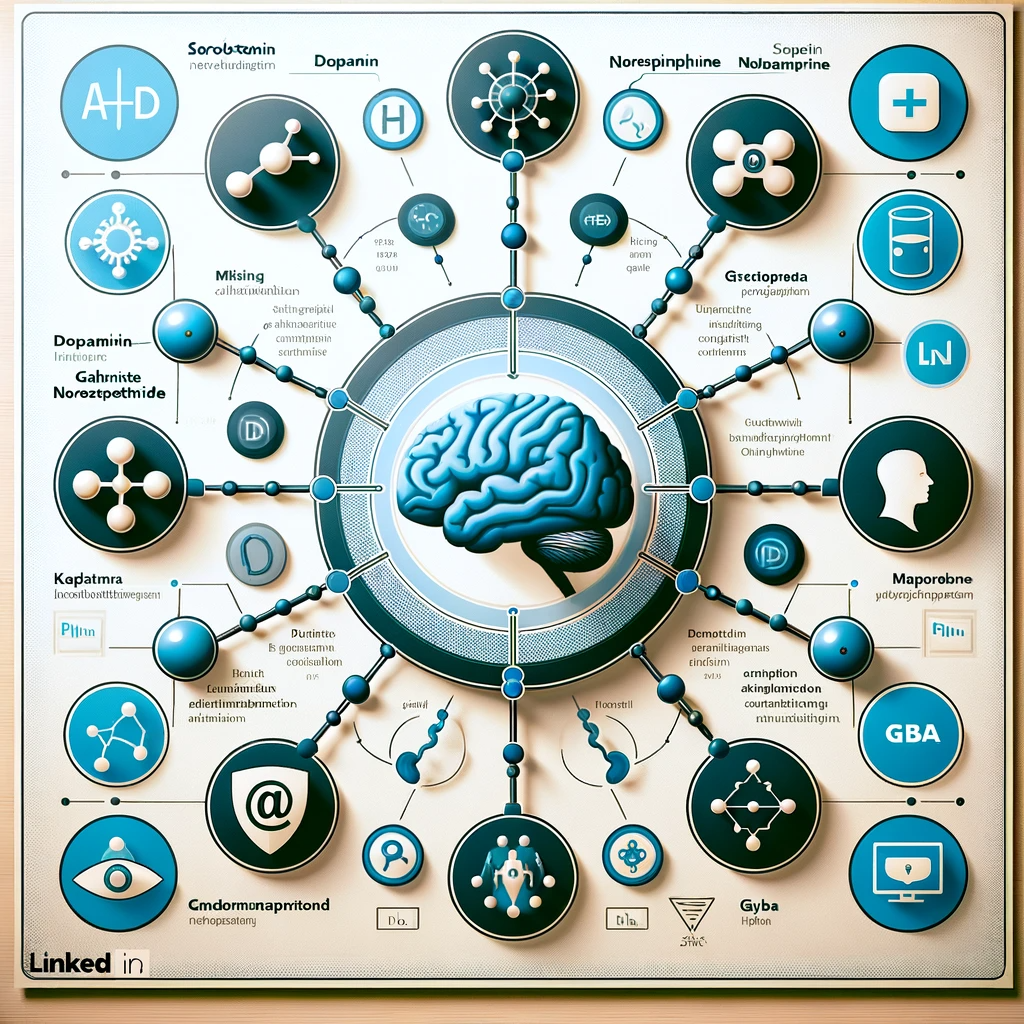The Chemical Messengers of the Brain
Neurotransmitters are vital chemical messengers in the brain, playing a crucial role in influencing our mood, behavior, and overall mental health. Understanding their function helps in grasping the complexity of mental health disorders and their treatment.
What Are Neurotransmitters?
Neurotransmitters are chemicals released by neurons in the brain to send signals to other neurons. They are key players in the brain’s communication system and significantly influence how we feel and act.
Key Neurotransmitters in Mental Health
- Serotonin: Often associated with mood regulation. Low levels are linked to depression. Antidepressants like SSRIs (Selective Serotonin Reuptake Inhibitors) are designed to increase serotonin levels.
- Dopamine: Plays a role in reward, motivation, and pleasure. Dopamine dysregulation is implicated in disorders like Parkinson’s and schizophrenia.
- Norepinephrine: Influences alertness and arousal. Its imbalance is often seen in anxiety disorders.
- GABA (Gamma-Aminobutyric Acid): Acts as an inhibitory neurotransmitter, helping to control fear and anxiety when neurons become overexcited.
- Glutamate: The most abundant excitatory neurotransmitter, crucial for learning and memory. Its dysregulation is implicated in neurodegenerative disorders.
Neurotransmitters and Mental Health Conditions
- Depression: Linked to low serotonin and norepinephrine levels. Treatments often focus on increasing these neurotransmitters.
- Anxiety Disorders: GABA plays a significant role here. Medications like benzodiazepines increase GABA’s effectiveness.
- Schizophrenia: Thought to be associated with an overactivity of dopamine in certain brain regions.
- ADHD (Attention-Deficit/Hyperactivity Disorder): Often linked to dopamine and norepinephrine regulation issues.
Conclusion
Understanding neurotransmitters offers a window into the complex world of mental health. It underscores the need for personalized medicine, as each individual’s neurochemical makeup varies.




